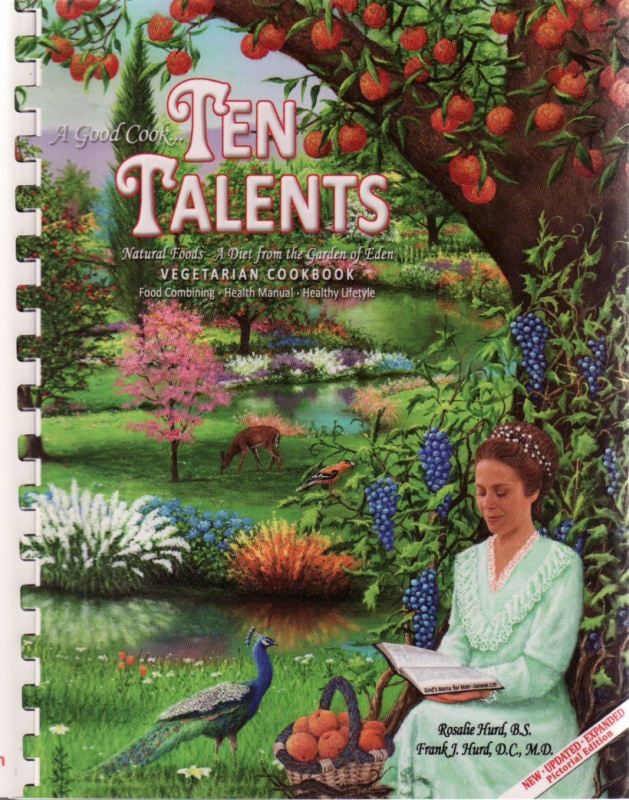In his later years, Fillmore felt so young that he thought that he might be physically immortal, as well as believing that he might be the reincarnation of Paul of Tarsus.
Veganism-Environmental Guide and Nutrition in Species Ministry. VEGAN = LOVE FOR PEOPLE, ANIMALS, PLANET.
Translate
MISSION STATEMENT
"V-EGANISM educates people and helps people and animals regarding the political and social justice cause, Veganism, which is a philosophy and way of living which seeks to exclude--as far as is possible and practical--all forms of exploitation of, and cruelty to, animals for food, clothing, cosmetics, household products, entertainment, service or any other purpose; and by extension, promotes the development and use of animal-free alternatives for the benefit of humans, animals, and the environment."
Healthy Body, Mind & Spirit Maneki Neko Cat

Love & Peace Maneki Neko Cat

Animals Killed Counter
Animals Slaughtered:
0 marine animals
0 chickens
0 ducks
0 pigs
0 rabbits
0 turkeys
0 geese
0 sheep
0 goats
0 cows and calves
0 rodents
0 pigeons and other birds
0 buffaloes
0 dogs
0 cats
0 horses
0 donkeys and mules
0 camels and other camelids


Wednesday, July 10, 2013
Charles Fillmore: 19th Century Strict Vegetarian
In his later years, Fillmore felt so young that he thought that he might be physically immortal, as well as believing that he might be the reincarnation of Paul of Tarsus.
Wednesday, June 19, 2013
Litha/Vegan Summer Solstice Recipes
Thursday, March 21, 2013
A Vegan Passover

Passover—the universal story of dignity, hope, and freedom—teaches that all suffering matters to God. And that means, of course, that it should matter to us as well. Refusing to have a hand in that suffering is especially timely at Passover, for in commemorating the escape of the Jews from Egyptian bondage, the holiday can remind us of the importance of continuing the battle for freedom for all beings. Prayers said on Passover can call on us to be kind to those who are now oppressed and to deepen our commitment to liberty today.
Here are several suggestions for having a cruelty-free vegan Passover meal:
Vegan Passover Recipes - Matzo Treats, Charoset
Vegan Kosher for Passover Recipes
Tasty Vegan Passover Recipes
Information on being vegan and Jewish:
Veganism and the Jewish Dietary Laws
VeggieJews : VeggieJews
Thursday, January 24, 2013
The Lord Christ Jesus Was a Vegan
Monday, November 26, 2012
Ten Talents

As I mention great gifts for holiday shopping, I want to mention Ten Talents cookbook, which is my favorite all-around book of all time. Just to let you know, Ten Talents is not a vegan cookbook; it does have some recipes with honey, but that's it regarding animal ingredients.
Frank and Rosalie Hurd's Ten Talents is a classic natural foods vegetarian/vegan health manual emphasizing God's Original Diet for man, from the Garden of Eden as found in the Bible--Genesis 1:29.
A pioneer veg*n best-seller, Ten Talents was first published in 1968, when the term vegan was virtually unknown in the US. This book of 675 pages has over 1,000 healthy recipes, including 21 informative chapters on foods, and in proper combination for fantastic health and nutrition. It has a natural foods and appliance glossary, information on baby feeding with recipes, recipes using vegetables, legumes, breads, desserts, fruits & fruit salads, grains, herbs & seasonings, meatless main dishes, nuts, seeds, olives, vegetable salads, salad dressings & dips, sandwiches & spreads, sauces, creams & gravies, soups & stews, sprouting, vegetables & side dishes, meal planning & menus, canning, freezing & drying, dairy & cheese substitutes, beverages, a section for those on a transition diet, and a chapter on the 10 healthy lifestyle principals for abundant health.
Compiled from the storehouse of real foods without the use of refined sugars, harmful additives, and animal/dairy products (except honey, which can be easily substituted by using other sweeteners the book mentions).
Ten Talents stays updated (the current book edition was published in April 2, 2012). It is also beautifully and artistically illustrated with more than 1,300 color photographs.
It makes a fabulous all-in-one veg*n cookbook!
Tuesday, November 20, 2012
Gary Kowalski - Minister and Animal Rights Activist
Gary A. Kowalski is a minister and an American author noted for his books on eco-spirituality, science, history, and animals. He is the author of eight books including:
The Souls of Animals, Science and the Search for God
Goodbye Friend: Healing Wisdom For Anyone Who Has Ever Lost A Pet
Blessings of the Animals: Celebrating Our Kinship With All Creation
The Bible According To Noah: Theology As If Animals Mattered, Earth Day
Green Mountain Spring and Other Leaps of Faith
Revolutionary Spirits: The Enlightened Faith of America's Founding Fathers
A graduate of Harvard College and the Harvard Divinity School, Kowalski was the senior minister of Burlington's First Unitarian Universalist Society for over 20 years. While there, he performed about 25 marriage ceremonies each year, including same-sex marriages because Kowalski said that the church should support all long-term, mutually committed relationships. He also served on the Vermont State Advisory Panel to the United States Commission on Civil Rights.
In the summer of 2010, Kowalski left Burlington and moved to Santa Fe, New Mexico, to begin a 12-month interim ministry for the Unitarian Universalist Congregation of Santa Fe. In the following year, he became interim minister at the First Parish Unitarian Universalist, of Sudbury, Massachusetts.
Monday, November 12, 2012
Familiar Strangers
Familiar Strangers: The Church and the Vegetarian Movement in Britain (1809-2009) is a book about the history of the relationship between the Churches and organized vegetarianism in Britain over two centuries.
Within the name, Familiar Strangers, author John Gilheany captures the essence of the struggle that has existed between the church and the vegetarian movements for the past 2,000 years, and his study of the last 200 years in Britain highlights the continued struggle, as well as the advances that have occurred.
For far too many years the majority of churches and church leaders have turned a blind eye and heart toward the suffering of animals, and the health problems to human beings that an animal product based diet causes. In Familiar Strangers, John Gilheany brings to light the historical documentation and the need for all of us to become vegetarian/vegan, for it is God's heavenly will for our lives, and the best thing for the animals and the environment.
In Familiar Strangers, we also see how the animal rights movement was a natural progression of the vegetarian influence with it's concern for the suffering of animals.
In 1809, the origins of the vegetarian movement were set in place with the foundation of the Bible Christian Church of Salford. The radical sect, whose congregation included local Civic leaders and the first M.P. for Salford, Joseph Brotherton (1783 - 1857) was instrumental in the formation of the Vegetarian Society, in 1847. Towards the end of the nineteenth century, the wider Food Reform movement had developed both secular and spiritual ideals which attracted a notable proportion of Christians.
Among the more prominent religious figures to have shared an association with Christian vegetarianism have been John and Charles Wesley; General William Booth, C.H Spurgeon, Leo Tolstoy, Lord Soper, and even Mahatma Gandhi.
The reluctance of the Vegetarian Society to adopt an overtly theological stance led to the formation of related but distinctly religious organizations. The Order of the Golden Age became particularly influential during the Edwardian period whilst operating from prestigious offices in London's Knightsbridge. The most remarkable achievement of the forgotten organization occurred in 1907, when their propaganda was met with a change in diet on the part of Pope Pius X.
The vegetarian movement entered into a decline after the Second World War from which it was unable to recover until the Counter Culture of the 1960s eventually gave rise to the modern animal rights movement.
Wednesday, November 7, 2012
Animals--God's Faithful Servants
Animals--God's Faithful Servants is written from a Christian perspective about the sacred relationship between God, man and animals. It deals with animal theology, pet loss euthanasia, dealing with grief, funeral services and includes biblical references to animals.
Sunday, September 30, 2012
Let Us Now Bark: Book teaches pet ministry
Marti Healy believes God gave man dominion over the creatures of the earth with strings attached: Rule with kindness, love unconditionally and listen for lessons of the heart.
A lifelong animal lover, Healy has discovered a deep spirituality in her relationships with dogs and cats, lessons she explores in her book, "The God-Dog Connection: Things I've Learned About God and Faith from the Dogs and Cats in My Life" (January 1, 2010 newer edition but reprint--same as the 2007 version book)
The Aiken, S.C., writer, who self-published the volume in 2003, is preparing a companion workbook that will help Christian churches develop small-group pet ministry programs.
Read more about Marti's ministry at: Book Teaches Pet Ministry
Companion books by Marti Healy:
The God Dog Connection Pet Ministry
The God Dog Connection Study Guide
Saturday, September 29, 2012
Animal Rites
Andrew Linzey is an Anglican priest, theologian, author, and prominent figure in the Christian vegetarian movement. He has authored and co-wrote many books on the subject of animal reverence.
Linzey has often been quoted as saying "Animals are God's creatures, not human property, nor utilities, nor resources, nor commodities, but precious beings in God's sight. ... Christians whose eyes are fixed on the awfulness of crucifixion are in a special position to understand the awfulness of innocent suffering. The Cross of Christ is God's absolute identification with the weak, the powerless, and the vulnerable, but most of all with unprotected, undefended, innocent suffering.
In 1990, he was awarded the Peaceable Kingdom Medal for outstanding work in the field of theology and animals. In June, 2001, he was awarded a DD (Doctor of Divinity) degree by George Carey, Archbishop of Canterbury, in recognition of his “unique and massive pioneering work in the area of the theology of creation with particular reference to the rights and welfare of God’s sentient creatures”. This is the highest award that the Archbishop can bestow on a theologian and the first time it has been awarded for work involving animals. In 2006, in recognition of his role in the creation of the Oxford Centre for Animal Ethics, Linzey was named the Henry Bergh Professor of Animal Ethics at the Graduate Theological Foundation in the U.S., the first such professorship of its kind in the world.
Some of Andrew Linzey's works:
Animal Rights: A Christian Perspective (London: SCM Press, 1976)
Christianity and the Rights of Animals (London: SPCK and New York: Crossroad, 1987 and 1989)
Animal Theology (London: SCM Press and Chicago: University of Illinois Press, 1994 and 1996)
Animal Gospel: The Christian Defense of Animals (Hodder & Stoughton Religious, 1998)
Animal Gospel: Christian Faith as If Animals Mattered (London: Hodder and Stougton, and Louisville, Kentucky: Westminster/John Knox Press, 1999 and 2000)
Animal Rites: Liturgies of Animal Care (London: SCM Press and Cleveland: Ohio: The Pilgrim Press, 1999 and 2001)
Creatures of the Same God: Explorations in Animal Theology (New York: Lantern Books, 2009).
Why Animal Suffering Matters: Philosophy, Theology, and Practical Ethics (Oxford University Press, 2009).






